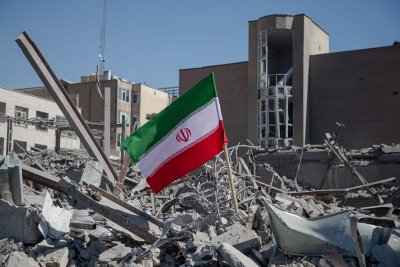S. Korea imposes travel ban on Iran amid rising Middle East conflict

South Korea imposed a travel ban on all of Iran amid rising security concerns linked to the escalating conflict in the Middle East, the foreign ministry said Thursday.
A Level 3 travel alert, which advises nationals to leave the country, was upgraded to a travel ban effective at 6 p.m., the ministry said, amid escalating tensions in the Middle East following U.S. and Israeli strikes on Iran.
The ministry warned that Korean nationals who visit or stay in Iran without authorization may face punishment under relevant laws, advising those planning to travel to the region to cancel their trips and urging those currently there to evacuate.
The ministry said it issued the ban as “the worsening situation in the Middle East has raised serious concerns over the safety of Korean nationals visiting or staying in Iran.”
“The government will continue to closely monitor developments in the Middle East and take necessary measures to ensure the safety of Korean nationals,” it said.
The latest measures come as South Korea is continuing to evacuate its citizens from the Middle East after about 140 nationals were brought to safety in earlier operations, as U.S.-Israeli strikes on Iran escalate into a wider regional conflict.
The government is actively considering sending a chartered plane to the region, including the United Arab Emirates, where more than 2,000 South Korean short-term travelers remain stranded due to flight disruptions.
Copyright (c) Yonhap News Agency prohibits its content from being redistributed or reprinted without consent, and forbids the content from being learned and used by artificial intelligence systems.
